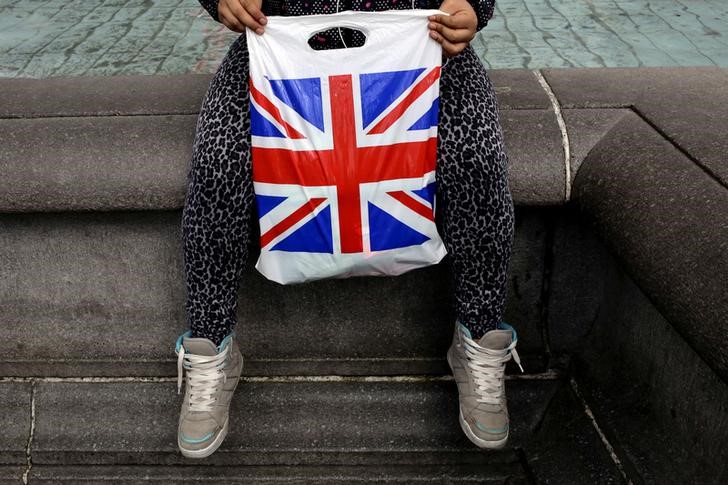LONDON (Reuters) - More Britons tried to rein in their spending in the second quarter of this year than at any time since 2015 as rising inflation squeezed household incomes, according to a survey published on Thursday.
Some 53 percent of Britons scrimped between April and June - the highest proportion since 56 percent did so during the same period of 2015, market research firm Nielsen said.
This marked a swing back towards household cost-cutting over the course of the past year, which had been at its lowest level on record - 40 percent - in the two months after the Brexit vote in June 2016.
But sterling's sharp depreciation in the immediate aftermath of the referendum - making imports more expensive - has pushed up shop prices at a time when wage growth is largely stagnant.
Official data published on Wednesday showed that wage growth fell by 0.5 percent in real terms in the three months to June.
Nielsen said Britain declined from second in Europe's consumer confidence rankings just before the Brexit vote to the ninth now.
Shoppers have changed their behaviour in a way that is reminiscent of the aftermath of the financial crisis in 2008/9, said Steve Smith, managing director of Nielsen UK and Ireland.
Thirty percent of respondents cited switching to cheaper grocery brands as their money-saving tactic, with another 27 percent working to save on gas and electricity.
A quarter of respondents spent less on new clothes and take-away meals, while fewer were willing to cut down on out-of-home entertainment, holidays and alcohol.
"Shoppers are well-trained to use their household grocery budgets as a way to manage overall household costs, particularly as the desire to treat themselves remains," said Smith.

"This is shown by the fact relatively fewer people are willing to sacrifice entertainment, holidays and takeaway meals."